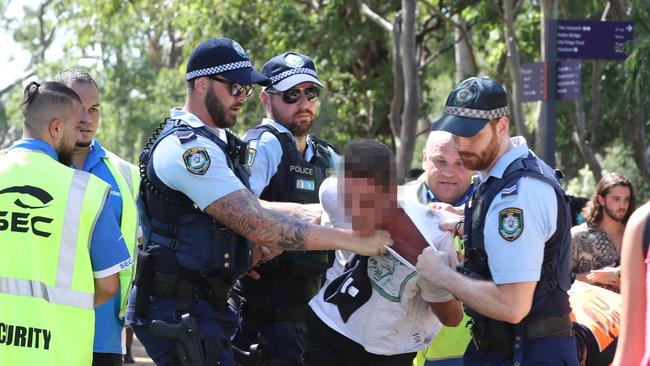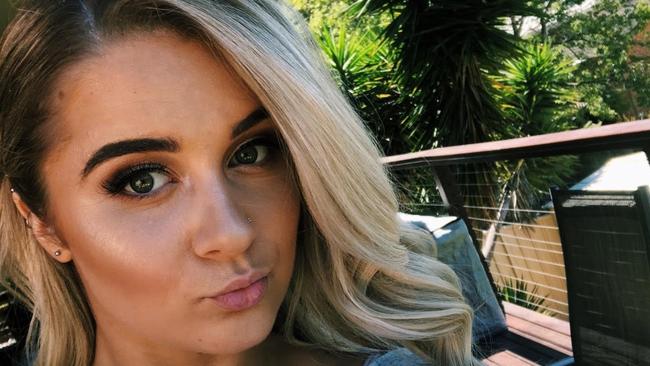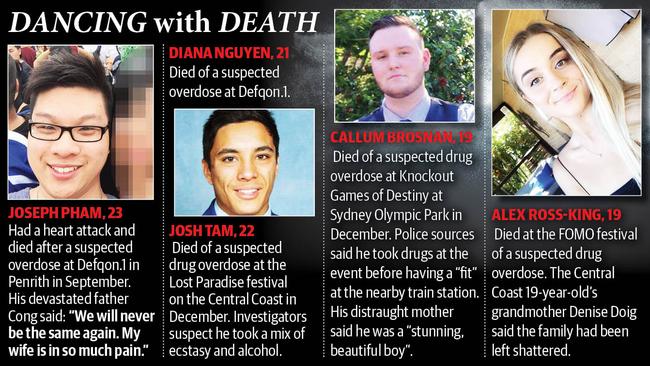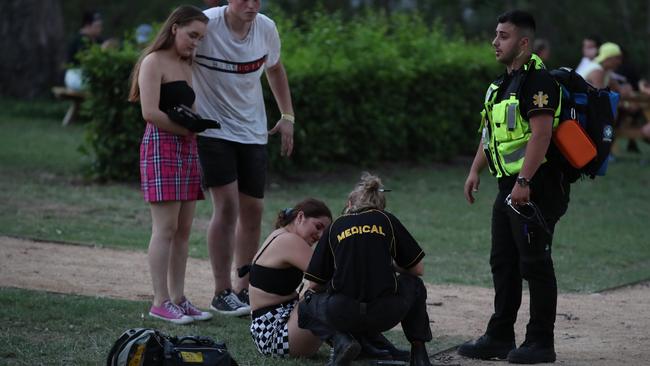Fifth drug fatality within four months puts festivals and their medical facilities under microscope
Music festivals may be forced to increase medical staff numbers on the ground in a bid to stop revellers dying in what has become one of the deadliest overdose summers in the country’s history.

NSW
Don't miss out on the headlines from NSW. Followed categories will be added to My News.
Music festivals may be forced to increase medical staff numbers on the ground in a bid to stop revellers dying in what has become one of the deadliest overdose summers in the country’s history.
The family of teenager Alex Ross-King was grieving yesterday as the Central Coast 19-year-old became the fifth person to die from a suspected drug overdose at a music festival in NSW in just four months.

MORE NEWS:
‘Beautiful soul’: Popular teen dies at FOMO festival
Man charged after fatal Lucas Heights crash
Grandson’s 93yo double murder mystery probe
She was partying with thousands of others at FOMO in Western Sydney on Saturday when tragedy struck. More than 11,000 people attended the event at Parramatta Park, with officers searching a total of 146 people and 54 people found in possession of drugs.
Nine people were hospitalised and 36 people arrested, including two who were charged in relation to supplying drugs. A further 24 people were ejected from the venue.
The Daily Telegraph can reveal that in response to the latest tragedy NSW Health is reviewing medical staffing guidelines for festivals and considering increasing the number of trained professionals required at events.

NSW Poisons Information Centre toxicologist Professor Andrew Dawson said it would look at whether festival organisers were doing enough to prevent deaths.
“We are looking at the minimal requirements for medical services a festival needs to provide,” Prof Dawson said.
“The requirements relate to the number of people at the concert and where the concert is located in relation to hospitals, and NSW Health will look at the guidelines to determine whether the numbers are appropriate.
“It is also important to make sure event organisers are providing appropriate services such as chill-out places and education.”

He said that the majority of drug users died due to excessive heat because drugs like ecstasy inhibit people’s ability to regulate their internal temperature.
“All tablets, all the party drugs, alter the way the body handles temperature regulation, and when you combine that with increased activity such as dancing and much higher ambient temperatures it is a fatal combination,” Prof Dawson said. “There are a large number of people who are taking drugs at festivals, so in that setting you have an increased chance that people will present with overdoses.

“We are concerned people are taking multiple tablets which increases the level of toxicity in their bodies, making it harder for them to regulate their temperatures.”
NSW Police Assistant Commissioner Mark Jones backed the NSW Health push and issued a stark warning to festival owners to clean up their events. “We’re making it really clear to the organiser, they’ve got to put in good practices to try and prevent both the use and the bringing in of drugs to these festivals,” he said.

NSW Premier Gladys Berejiklian yesterday maintained her opposition to pill-testing, saying she feared it would make the situation worse. “My job is to keep the community safe at all times and if there’s more we need to do we will,” Ms Berejiklian said.
“But I also want to make sure we look at every opportunity to reduce those deaths. I worry that something like pill testing could have the opposite effect.”
The organisers of FOMO declined to answer questions about their anti-drug measures yesterday but released a statement saying the “safety and wellbeing of our patrons is at the forefront of every planning decision”.
“Our anti-drug messaging began weeks ahead of the event and continued at the event itself — a message we’re proud to deliver and will continue to do so with unwavering commitment in order to keep our beloved patrons safe,” a spokeswoman said.
Australian Medical Association president Dr Tony Bartone said he wanted to see a national pill-testing trial.
“There is evidence overseas that they are being implemented and are part of preventing harm reduction,” he said. “What is currently happening is not working and we have to take a much more mature and scientifically based approach.”
And Dr Bartone warned drugs were becoming more dangerous: “There has always being risk-taking behaviour but the substances are getting worse and people are trying to exploit these drug users.”


